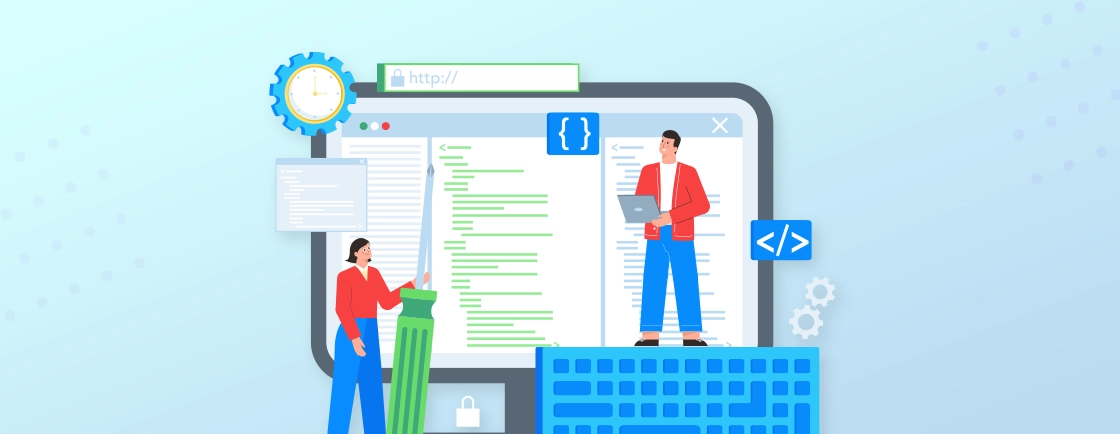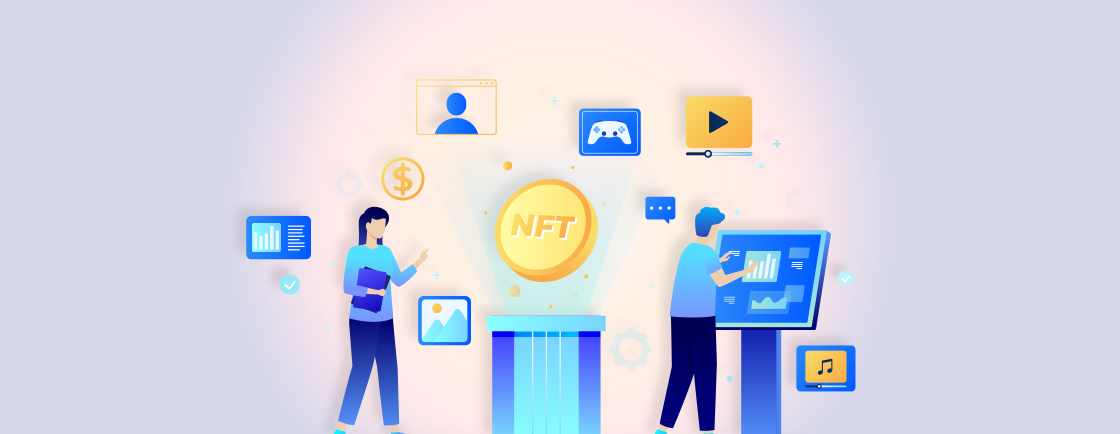Table of Contents
Having a learning management system (LMS) can be beneficial for your organization. The right LMS can drive engagement, streamline training, and improve overall learning outcomes. However, to truly make your LMS stand out and achieve your goals, customization is key.
A one-size-fits-all LMS often falls short when it comes to meeting specific user needs, content delivery styles, or business objectives. Customizing your platform to reflect your unique requirements can make it much more effective.
In this blog, we’ll list down the top LMS customization features a professional LMS development agency provider would ensure. Having these features will make your platform more useful and future-ready. Let’s get started.
Why is LMS Customization Important?
Customization helps build an effective LMS that meets the unique needs of your organization and users. Here’s why:
- Better User Engagement: A tailored LMS with interactive features and personalized learning paths keeps learners engaged and motivated.
- Reflect Your Brand Identity: LMS customized with your logo, colors, and fonts builds trust and creates a professional, cohesive learning environment.
- Increased Flexibility: Customization lets you adapt the LMS to your needs, whether it’s course formats, tools, or software integration.
- Improved Learner Tracking: Customized tracking allows you to monitor learner progress, skills, and achievements based on your specific requirements.
- Streamlined Administrative Tasks: Customizing user roles and workflows simplifies administrative tasks, saving time and reducing errors.
Customization ensures that your LMS aligns with your goals, providing a better experience for both learners and administrators.
Must Have LMS Customization Features
When building a successful Learning Management System (LMS), customizing it helps make the most out of it. Below are some must-have features that can make your LMS platform stand out and work best for your goals:
Branding
A personalized LMS platform that reflects your brand’s identity can help improve user engagement. Customizing logos, color schemes, and the overall look and feel of your platform creates a cohesive experience for learners. By aligning the design with your brand, you build trust and make your platform feel more welcoming and professional.
Easy and Interactive Course Creation
One of the most important features of an LMS is the ability to create and manage courses easily. A user-friendly course creation interface is essential for instructors to build engaging content quickly. A good LMS allows for:
- Interactive Course Creation: You should be able to add multimedia elements such as videos, quizzes, assignments, and simulations. These interactive features help keep learners engaged and enhance their understanding.
- Game-Based Learning: Integrating elements of gamification, such as points, leaderboards, and rewards, can make learning fun and motivating. This feature encourages learners to complete modules and engage with the content regularly.
- Content Library: A well-organized content library allows instructors to store and reuse materials across different courses. Learners can easily access the resources they need, improving both the learning experience and course management.
Skills and Certification Tracking
An effective LMS should track the progress of learners and their acquired skills. This allows both learners and instructors to see what’s been completed and what still needs attention. Key features here include:
- Skills Tracking: Track individual skill development over time. As learners complete courses or modules, their progress toward skill mastery should be updated automatically.
- Certification Tracking: Issuing certificates upon completion is a great way to recognize learners’ efforts. A customizable certification feature allows you to create your own certificates, ensuring they align with your branding and educational goals.
Course Recommendations
A great LMS should offer personalized course recommendations based on learners’ past performance, interests, and career goals. AI-based algorithms can be used to analyze user behavior and suggest the most relevant courses, which helps improve user engagement and retention.
Badging
Badges are a great motivation tool in online learning. Customizable badging systems allow you to reward learners for achieving specific milestones, completing modules, or mastering certain skills. Badges can be a fun and effective way to encourage learners to continue progressing through courses.
Reporting and Analytics
Customizable reporting and analytics features provide insights into how learners are performing. Key features include:
- AI-Based Reporting: With AI-powered analytics, you can predict trends, identify at-risk learners, and tailor content delivery to individual needs.
- Analytics Dashboard: A centralized dashboard allows instructors and administrators to view important metrics such as user progress, course completion rates, and learner engagement. These insights can guide decisions on course adjustments or training needs.
Support for Multiple Devices
Your LMS must support multiple devices, such as smartphones, tablets, and laptops, to ensure learners can access content anytime, anywhere. Mobile-responsive design and cross-platform compatibility are key for offering a seamless learning experience.
Roles-Based Customization
Different users on your platform will have different needs and responsibilities. Roles-based customization allows you to create tailored experiences for different user groups, such as:
- Administrators who manage the platform
- Instructors who create and deliver content
- Learners who take courses
- Support staff who assist with technical issues
Each role can have its own set of permissions, ensuring that everyone has access to only what they need.
Dynamic Rules
Dynamic rules allow you to adapt the learning process based on learner behavior. For instance, you can set rules that automatically enroll learners in a course after they complete a prerequisite, or send reminders to users who haven’t logged in for a while. These dynamic features keep the learning journey flexible and personalized.
Notifications, Reminders, and Smart Recommendations
Keeping learners notified helps maintain engagement. Automated notifications and reminders can keep learners on track with due dates, upcoming assessments, or new content. Additionally, smart recommendations based on user progress can help guide them to the next course or learning module they should take.
Single Sign-On (SSO)
Single Sign-On is a convenient feature that allows users to access the LMS with just one set of login credentials. This eliminates the need to remember multiple usernames and passwords and streamlines the user experience. SSO is particularly useful for corporate environments where employees need access to multiple platforms.
Security
A secure LMS is essential to protect both user data and your platform’s integrity. Strong security features like encryption, two-factor authentication, and regular updates prevent unauthorized access or data breaches.
Reliability
A reliable LMS ensures a smooth learning experience without interruptions. Choose a platform with high uptime rates, robust servers, and technical support to ensure learners can always access their courses, materials, and assessments without delays.
Easy Data Migration
As your platform grows, you may need to transfer data from your old system to your new LMS. An easy data migration feature ensures that all user information, course materials, and historical data can be smoothly transferred without data loss or disruption.
Chatbots for 24/7 Support
Providing round-the-clock support helps users get real-time assistance. Chatbots can help provide instant answers to frequently asked questions, assist with navigation, and even troubleshoot common issues. They make sure users always have access to help, no matter the time zone.
SCORM & xAPI Compliance
For a truly flexible and interoperable learning platform, SCORM (Sharable Content Object Reference Model) and xAPI (Experience API) compliance are essential. These standards allow you to integrate third-party content and track user activity across different platforms, providing a richer learning experience.
Social Learning and Multi-Language Support
- Social Learning: Social learning features, such as discussion forums, chat groups, or social media integration, can enhance user interaction and engagement. Learners can collaborate, share resources, and discuss course topics.
- Multi-Language Support: If your audience is international, multi-language support allows you to offer courses in various languages. This feature broadens your platform’s accessibility and helps engage a global audience.
Offline Learning
For users who don’t have consistent internet access, the offline learning feature allows them to download content and continue their studies. Once they’re online again, their progress can be synced with the LMS.
These features, when customized to suit your platform’s needs, can significantly improve the learning experience for your users and ensure the success of your LMS.
Final Words
Having your LMS customized with these powerful features can make a world of difference in its performance and how users experience it. The right customizations will ensure your LMS is tailored for success.
By prioritizing necessary features you can create an engaging, secure, and efficient learning environment. Invest in the right LMS customizations, and your platform will be set up for long-term success.
If you need advanced features for your LMS, hire an expert LMS development company to get the best output.
FAQs on LMS Customization Features
How can LMS be improved?
LMS can be improved by adding interactive features, enhancing user experience with mobile compatibility, offering personalized learning paths, implementing robust analytics, and ensuring easy content management and data security.
How should I choose features for my LMS?
Choose features based on your organization’s goals, learner needs, and content type. Focus on ease of use, customization, reporting capabilities, integration options, and scalability.
Does a Custom LMS have more features?
Yes, a custom LMS offers more tailored features, allowing you to integrate specific tools, branding, and functionality that meet your unique requirements, providing a better user experience.
Explore Our Expert Guides
Dive into detailed tutorials, tips, and strategies designed to help you grow, innovate, and solve problems efficiently.





